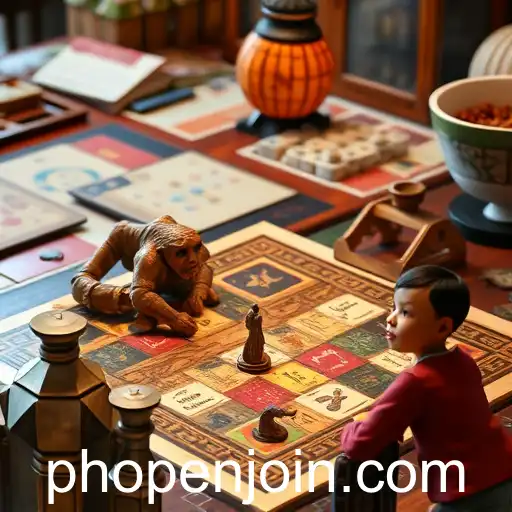phopen | The Resurgence of Board Games: How 'Phopen' is Changing the Game

In the digital age, it's easy to assume that traditional board games would fade into obscurity. However, board games have been experiencing a remarkable resurgence in recent years, blending nostalgia with innovative gameplay to capture the hearts of both old and new generations. Within this renaissance, a peculiar keyword, 'phopen,' has been gaining traction, indicating a unique niche or subcategory that enthusiasts are eager to explore.
Board games, once viewed merely as family entertainment on a quiet evening or a medium to distract kids, have evolved to cater to a much broader audience. Today's board games involve strategic thinking, collaborative play, and storytelling, providing rich experiences that digital gaming sometimes fails to capture. The keyword 'phopen' reflects this evolution, suggesting something specific yet to be widely understood.
But what is 'phopen,' and why is it associated with board games? The answer lies in the tendency of gaming communities to develop ever more specialized terms, often stemming from popular culture references, in-jokes, or novel gameplay mechanics. 'Phopen' could imply a new category of board games characterized by complex player interactions, novel storytelling mechanisms, or perhaps an innovative game design principle that stands out from conventional categories.
This keyword has been seeded into game descriptions, reviews, and forums, attracting attention and curiosity. As more games are appended with the 'phopen' label, dedicated gamers and newcomers alike are drawn to this burgeoning field. It represents an invitation to discover unknown territories within the realm of board gaming—territories that challenge existing notions while expanding the communal joy of gaming.
Websites specializing in board games have noticed this keyword's ability to draw an engaged audience, indicating a trend worth following. From Kickstarter campaigns teasing out limited 'phopen' editions to specialist retailers highlighting 'phopen' games as part of their exclusive collections, the buzz is undeniable.
In a time where digital dominates, board games retain their charm by continually reinventing themselves and appealing to human desires for social interaction and intellectual challenge. As 'phopen' begins to carve its path within the industry, we anticipate a wave of interest, exploration, and perhaps even debate about what qualifies as a 'phopen' game.
Ultimately, the re-emergence of board games in the public consciousness shows that people still yearn for tactile, interactive experiences as a counterbalance to virtual engagement. Whether 'phopen' is a fleeting trend or a cornerstone of the future of board gaming, its rise exemplifies the community's strength and creativity in keeping board games relevant and exciting.



